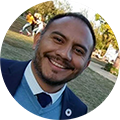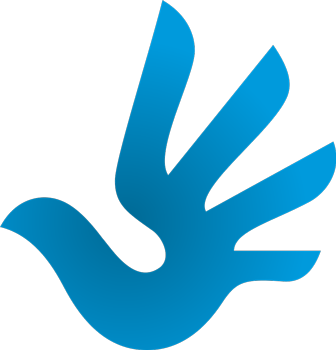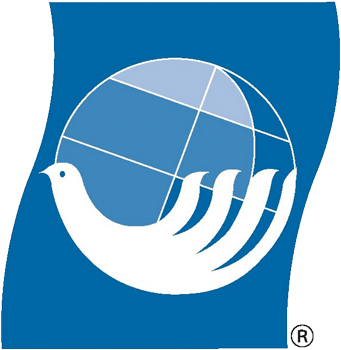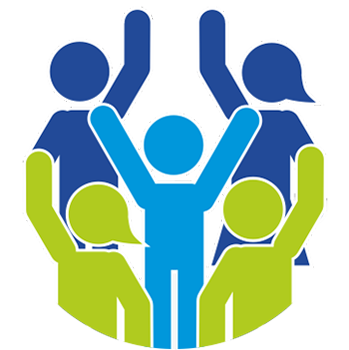
We interviewed Déborah García-Luna González, representative of Organized Willpower at the Managing Global Governance Academy (MGG Academy) in 2022.
In 2019, the COVID-19 health contingency affected millions of people around the globe. This recent phenomenon showed our vulnerability as a species and demonstrated how interrelated we are no matter where we are located.
Amongst those affected by the health emergency was the MGG Academy which had to suspend its four-month stay in the city of Bonn in Germany. Under this scenario, the German Institute of Development and Sustainability (IDOS) was digitized to continue the activities of the Academy. This sudden change also impacted the participants of 2020 and 2021 (from Brazil, China, India, Indonesia, Mexico and South Africa) who had to cancel their trips and attend the Academy remotely.
This “digitizing” period of the network broke many paradigms. It motivated its members to connect remotely without flights, which surely reduced our carbon footprint. Although we were left with the desire to celebrate the 15th anniversary of the program and see each other in face-to-face meetings, we had plenty of opportunities to connect through video calls.
The wait is finally over and the MGG Academy has resumed its face-to-face mode. This is a special year for Organized Will (VO) since it is the second time that one of its members has been selected to participate. On August 10, we interviewed Déborah García-Luna González, Coordinator of the Project for the Mainstreaming of the Gender Perspective (PERGENERO), hours before she flew to Germany, and this is what she shared with us:
We will now share the interview with one of the representatives from Mexico:
— Hi, Deborah. As we know, you graduated with academic excellence with the Bachelor of International Relations at the Universidad Iberoamericana. In addition, you did the Diploma in International Cooperation at the Mora Institute and you have specialized in gender and business. Furthermore, you worked at the British Embassy in Mexico and at the Mexican Agency for International Development Cooperation (AMEXCID). You also collaborated with the United Nations Development Program (UNDP) in the creation of the “Spotlight Initiative”, in order to reduce femicides and violence against women and girls in Mexico. All that sounds very high-level, but please tell us, who are you on a personal level?
— Wow, what a difficult question! Well, I am a 31-year-old woman, born in Mexico City but raised in the State of Mexico, who likes to believe that she fulfills her life surrounded by her family, friends and playing with her dogs. And I was selected to participate in a stay in Germany to learn about global governance management, which I know I can still learn more about. My perspective in this regard is that it is a group of promoters of change, that talk about transnational conflicts and think about solutions to common problems. What I can tell you is that I am very excited and that I have high expectations.
— And why do you consider yourself a promoter of change?
— Gender issues have been important to me throughout my whole life and I have always felt motivated to improve people's living conditions. As you already mentioned, when I was at AMEXCID I was entrusted with the beautiful responsibility of initially drawing up some guidelines to identify if a project had a gender perspective. I took it to the next level. I mobilized several people with strong personalities who worked on the issue within the agency. We formed alliances, and we identified internal and external key actors that could help us. Once we had an idea, we presented it to the Directors and, with the support of UNDP and the German Cooperation (GIZ), we achieved something much bigger than the initial task that had been given to me. In fact, we created something that did not exist in any of the Latin American countries and we grounded it in something concrete based on the needs of the nation. The "Mexican Action Protocol for the Mainstreaming of the Gender Perspective" is the result of cooperation between people and agencies. This protocol helps me confirm my abilities to mobilize people and resources to create positive actions that will contribute to development.
— How would you define Global Governance and why should we see it as relevant?
— Global Governance refers to the efforts of organizing everything that goes beyond national borders, particularly in regard to human rights and development. When we speak of Governance we involve many very diverse actors. Particularly those that do not participate in the internal discussions between the member states of international mechanisms and institutions, such as the United Nations (UN) or the Inter-American Development Bank (IDB) Even though these institutions increasingly include and seek alliances with actors outside the governments, who are working on these issues, regardless of the country of origin.
— For those of us who are not internationalists and particularly for people who do not follow or are not involved in global discussions or who do not even identify a direct relationship between these issues and their daily lives. How are global governance and multilateralism different?
— Precisely, I know this question because I studied international relations. In more everyday terms and for people who don’t really know the topic, I would say that when we speak of multilateralism, we refer to alliances between governments, agents or institutions that represent the official position of the countries. But when we talk about Global Governance we go further, we are talking about all the actors that can contribute to an understanding of transnational problems and whose participation in the discussion contributes to finding solutions. While multilateralism is reduced to the political spheres, in which decisions are made in the traditional way, in global governance we talk about all people, no matter where they come from. All people have the capacity and are important and necessary to create solutions. We can all contribute to a common goal.
— How did you get involved in the MGG Academy?
— Oh, there were so many factors! From a very young age, it was interested in this topic, but I didn’t even know how to name it. When I traveled to Germany as part of the research process for the elaboration of the Gender Protocol, I had the opportunity to interview many experts who worked in institutions such as the German Institute for Development Evaluation (DEval) or IDOS itself. I really liked this experience. I learned how they interpret development and how they respond to global challenges. Then I found out about the MGG Academy and I knew in my heart that one day I had to go. I wanted to participate in these debates with professionals from the main emerging countries of the world, with such different profiles, with experience working in such diverse sectors, and collaborate to seek common solutions for our countries. You wouldn't believe my excitement to be a part of this.
— How do you expect the MGG to contribute to your training and development?
— Everyone has told me that the MGG is wonderful. Well, maybe not everyone, but at least the alumni I know and other people involved. I want to understand why they consider this experience so wonderful and why they talk about it as a “once in a lifetime experience” or “a life-changing experience”. I am interested in knowing how they apply peer learning and how to take advantage of it, especially from the civil society approach. I would very much like to strengthen my leadership skills because I am interested in enhancing my skills and tools to mobilize people
— ¿Do you have a special interest in a particular topic?
— Yes, I am interested in issues related to gender and I particularly want to hear from other experts from the countries participating in the Academy and from the European Union about how they apply gender mainstreaming in their projects. Although I do not consider myself an expert, since we are always bettering ourselves, I also want to learn more about how global challenges are addressed and how to introduce a gender perspective in their proposals for solutions.
— What do you consider to be the main global challenges?
— I believe that there are many conflicts, challenges and problems in the world. To begin with, we need to form a common front to achieve a world without violence, reduce vulnerabilities to climate change, and use new technologies to help us solve global problems. But the main root is to reconcile ideas. I think it's all about people focusing on trying to take control of the discussion and prioritizing our needs above the needs of others. Perhaps it would be better to focus on the needs of all the people involved, look for common points and form alliances that help us solve them.
— What can you contribute to its solution during the MGG?
— I don't know if the four months of the MGG Academy are enough to offer such concrete solutions. But it is clear to me that all the people who have been selected have knowledge, skills and experiences that can contribute to discussing solutions. I have project development skills, but I am more interested in improving them in a way to implement local-level projects that can contribute to solving global challenges. In addition, the MGG is not reduced to a four-month stay, because all the people who have graduated from this program in the last 15 years are part of an extensive international network of experts. I truly believe that we have the potential to contribute to solutions.
— Why do you consider Mexico's participation in the MGG network important? How could you benefit the country?
— I love that IDOS is bringing together countries with potential, the so-called emerging countries. In particular, Mexico is recognized for its ability to generate and maintain international relations, it has signed many treaties, mainly on human rights. Now, the important thing is to “lower” these treaties and really “ground” them through processes that trigger change with the support of people who promote concrete actions that are capable of generating change. The important thing is that it does not stay as just a governmental responsibility where the population has no say. On the contrary, it is important that people create the necessary conditions for solutions to be achieved. Plus, Mexico is involved in the MGG because it is a leader at the regional level. Surely, the country will be able to share with other countries, through all its forms of cooperation, its knowledge and skills.
— How does global governance contribute to sustainable development?
— — In many ways! When we talk about sustainable development, we are saying that development must take place throughout the world. And it is through global governance that we will be able to create alliances to involve diverse actors, traditional and non-traditional. We must not think that one person, one institution, one government or one country will have the answer. All actors must be included in the change and work together to find solutions to challenges that cross borders. None of this will be possible if we allow the analysis of conflicts, decision-making and the implementation of solutions to take place within organizations that just bring together political representatives of national governments, without considering the other voices and without involving the rest of the actors. In short: FOR DEVELOPMENT TO BE SUSTAINABLE IT MUST HAPPEN ALL OVER THE WORLD AND BENEFIT ALL PEOPLE. AND GLOBAL GOVERNANCE IS WHAT WILL ALLOW US TO ACHIEVE IT.
— How is global governance linked to international cooperation and civil society?
— International cooperation is a mechanism for carrying out global governance. There are many other mechanisms, but international cooperation allows us to work together by mobilizing resources, knowledge, contacts and forming alliances in different places to face problems that we all have. For its part, civil society is super interesting and has a global role because in some way it represents the voice of the people. We must not forget this. The best way to solve problems is to move from the assistance-oriented approach. We must understand that it is the people who can achieve collective action. We have to turn to locally organized people. If you don't go and listen to the people it is difficult to achieve a change that really helps them, we need to listen to their narratives, their problems, and their ideas for solutions. Civil society is imperative to facilitate the collection of this information and make it reach other spheres.
— What everyday actions can a person do to help solve the global problem of your interest? What actors should intervene for its solution?
— In the globalized 21st century, we must stop thinking that our actions are isolated and that they have no impact. All our actions are political. Everything from shopping, talking with our colleagues, family and friends; or even when interacting through social networks is a political act. We have the responsibility to choose what we consume and be aware that this will affect people. We must question not only if we like what we are consuming but, who was affected in its preparation, whether it was made fairly, without exploitation and without slavery, and without affecting other women. Another example is our political vote. When voting, perhaps there is no perfect fit for us, but we can at least choose someone that shown a commitment to the rights of all people and has publicly promised not to violate them. People can also face situations by participating in an organized way as a civil society, without this having to be the central axis of their lives, they can contribute through volunteering. They can also participate in discussions and spaces for dialogue to question and rethink their daily actions, understanding that they are part of a system that impacts others. Even in the way we relate to each other, how they talk to their partner, and their parents, how they interact with girls and boys, how they act at work and even in their personal beliefs.
— Which sectors are priorities for achieving global governance?
— I would like to emphasize that ALL sectors are necessary. It goes beyond the national government or local governments, it includes think tanks, other public institutions, the private sector, union and worker organizations, academia, corporations and transnational companies, native peoples, Afro-descendants or equivalent, among many others; but especially the people who, through civil society, are capable of catalyzing collective action, managing resources and mobilizing. We all go to this party. Something I would like to add is that ALL ages are included, whether they are young, or not so much, adults or older people, EVERYONE CAN BE A PART OF THE SOLUTION.
— So, from your perspective, why is the participation of Organized Will relevant in all this?
— Well, Organized Will has participated in the MGG since 2018, it began with your representation in that generation of the Academy and continues with my own. VO as a partner institution has not limited itself to nominating participants for the academy. It has formed closer relationships with the IDOS team and others in the network. In 2019 we collaborated on the dialogue table on migration at the network's national meeting. We also go beyond participation in network activities. VO seeks to promote and articulate inter-institutional alliances to project solutions to global challenges with a sustainable human development approach, through initiatives that can be implemented locally. The MGG Network will be a way to achieve it and this year I will have to continue with that task. Furthermore, the MGG Network is not the only Global Governance mechanism in which we are involved. Since VO's origins, even when it was just a group of teenagers, we have participated in various international forums and events, coordinating or getting involved in the preparation of declarations, contributing locally through human development and sustainable projects. More recently, with a more adult approach and more specialized profiles, we have been part of the Sustainable Development Solutions Network (SDSN) since 2017, members of the International Solid Waste Association (ISWA) since 2021, last year we coordinated two seminars on international weight and we got involved with the Solidarity Learning and Service Network this year, which is another regional initiative.
— How do you expect your return to Mexico and reincorporation into the labor market to be?
— I still wonder as I am yet to leave, but I would very much like to return and apply what I have learned since governance is very nuanced and inherently diverse. I believe that Mexican society needs to develop new and better skills to meet its needs and make tools that allow us to articulate that diversity and agree on solutions. That is precisely why I believe that the GOVERNANCE FROM CIVIL SOCIETY approach is very important. Many solutions are proposed by the government or with the vision of large organizations, but civil society is more than that. The representativeness that it has achieved is something quite beautiful. I want to return and contribute to global challenges from a local standpoint, as the Earth Summit in Rio taught us “think globally, act locally”. I also hope that my participation in the MGG will help me improve my profile as a consultant, which is another way in which I want to contribute to the world.
This week the activities of the MGG Academy will start, in which David Bates, Mauricio Aceves and Georgina Morales also participate, representing the private, public, academic and German cooperation sectors in Mexico. In addition to the fact that Andrea Robles will join as an alumna in support of the IDOS team, whom we interviewed for her participation in 2019 (read the blog entrance).
To learn more about Global Governance we have the microsite mgg.vo.org.mx of Voluntad Organizada, where you will find more information about the MGG Academy and the MGG Network. In addition, we recommend visiting the website of the German Institute for Development and Sustainability (IDOS).

Cristian Becerra Monroy
Let's be part of the solution!





